
|
The music of Help Yourself was never easily categorised. American-flavoured
country-rock to begin with, albeit still somehow redolent of pastoral
England, by their second and subsequent albums they were purveying
some of the finest acid-drenched psych this side of the Mad River.
Their four albums are highly respected, and distinctly collectable,
to this day, and they rarely feature in second-hand catalogues
without some additional epithet to their glory ("Fabulous,
vastly underrated band" seems to be the most common style
of address used). And yet, even if they were universally derided
I'd still love them, because somehow Help Yourself had a knack
of writing songs which seemed written especially for myself, that
stayed in my head and played havoc with my heart. And if you don't
already know that feeling for some band of your own favour, then
it's no use me expanding on it.
Help Yourself's story is not a happy tale; indeed it's one of the most profoundly sad stories of missed opportunities and personal hang-ups ever related. Guitarist Richard Treece takes up the story.
| ||
|
"After a while playing with various Northern blues bands, I decided that London was the place to be. A couple of us moved to London in 1968 in the midst of the blues boom. We hung out at Elephant & Castle with Jo-Anne Kelly and the John Dummer band, trying to borrow their gear but failing to make the gigs due to the road manager's preference for chatting up girls in the Kings' Road. "There followed a period of sleeping on the floor of students' flats and auditioning for Jethro Tull, Dock's Blues Band and so-on. After seeing a Blind Faith concert with my old friend Bonk, a bassist, we found a room in East Sheen with some college girls. Various failed auditions and doing some graphics work for ITV followed, and I finally rang up an ad for 'work in cosmetics - no experience necessary', thinking that I couldn't blow it, having already scraped the bottom of the barrel applying for a grave-digging job in Richmond and running as a 5 quid a week messenger boy.
|
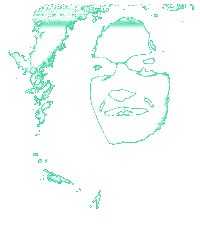
| |
|
"I tried the impossible task of looking 'straight' and
went along to Strand Cosmetics for the interview. The interview
went surprisingly well and I wondered what was going on. Then
this huge, maniacal figure in white overalls, beard and flowing
mane looked in at the door. It was John Eichler, who thought I
was some 'plot' that fellow worker Malcolm Morley had devised
since I looked so strange. The opening line of conversation was
'what instrument do you play?', and it turned out that most people
were hired either for 'musical ability' or 'strangeness'. Malcolm
at the time was set on a solo career and was totally jaded with
working in the factory. I was informed by a heroin addict that
'it's cool, man, this place is run by freaks and heads'... Malcolm
and I didn't talk much, except for 'what bands do you like?' sort
of conversations.
"John returned from holiday and said Eire Apparent had need of a guitarist. It turned out that John was living with Dave Robinson, ex-roadie for Hendrix and manager of Eire Apparent. They'd just returned from a Hendrix tour in the States and were in a state of disarray, living in a big house in Blackheath. I went for a jam along with Dave, John and Stephen Warwick of 'Famepushers'. Nothing much happened. I started going to John and Dave's place in Barnes a lot, and had a few unsuccessful attempts to play with Malcolm through my trusty old Vox that I carted around with me everywhere. Then there were some more visits to Eire Apparent's, and sessions with Malcolm, Davey Dutton, Chrissie Stewart and Mick Smith of 'Sam Apple Pie' - Dave Charles' band, and Malcolm's first session. Hendrix had given Mick Cox, the last guitar player, a Gibson Flying V, and it was a joy to jam on it with Ernie [Graham - ex-Eire Apparent] and Chrissie. Dave Charles suggested that Malcolm and I formed a duo, reckoning that it would go down a treat in the States.
|
||

|
"After a while, Malcolm did an album with Sam Apple Pie
and left the cosmetics factory, and I started spending time in
psychedelic Oxford Gardens, in a flat shared by various Pink Fairies.
Eventually I moved to the front room in Barnes, and got sacked
from the factory after blowing up the pulveriser and fusing the
lights. It was then that I remembered one of the brief conversations
I'd had with Malcolm about doing a mural on the wall of his flat
in Walthamstow, which I did, and we started playing some.
"I returned to Lincolnshire for a while, supposedly to join 'Monday Morning Glory Band' who were going pro and getting radio airplay. About that time 'Famepushers' was getting under way with Stephen Warwick, ex-Sam Apple Pie manager; Dave Robinson and Dot Burn-Forti who'd worked in the music business and in modelling. I went back to Walthamstow after decisions were made to start up 'Help Yourself' as a full band. Dave Charles had become disillusioned with Sam Apple Pie and was coming round to the flat with various records (including jazz), and was well into the idea of a new band.
|
|
|
"I visited my mother for Christmas and around January
6th (1970) they came to collect me after getting news that Famepushers
were offering financial support. I met Paul Burton, also a Sam
Apple Pie associate who was into the idea of 'roadying', Eventually
we got a room upstairs at Malcolm's place and things began to
move. Within a few weeks of our formation Paul spotted Ken Whaley
leading out of his Portobello (Golborne Road) window. He recognised
him from a band called 'Growth', who he'd been with for a few
years. Ken had been doing Ded Zep-type auditions and was immediately
into the idea of a 'different' kind of band, and sort of joined
on the spot. We all automatically seemed to like each other and
started rehearsing in Malcolm's basement. At one time my sister
was going to join as second singer, but fortunately for her it
didn't come to fruition."
| ||
|
It was January 1970, and Help Yourself were a band (of sorts),
complete with a manager, a roadie, and an impressive array of
gear: one Vox AC30 amplifier, a Framus 12 string guitar and a
set of Broadway drums. Oh, and Richard's Stratocaster which they
tried to persuade him to sell in order that they could eat. Richard
takes up the story once again:
|
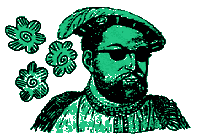
| |
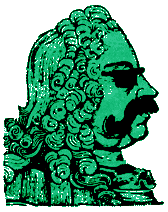
|
"The early days seemed magical, making tapes in the basement.
Malcolm would start playing and singing and somehow we'd have
a song. In March, Dave and John flew to New York on the Brinsley
Schwarz Fillmore Venture. After a few false starts we did a couple
of tracks at Olympic studios in Barnes ('Momma Touch The Earth'
and 'Harleycorn House'). Dave Robinson managed to get us a joint
contract with Ernie Graham and Brinsley Schwarz for seven years,
I think it was, which for an unknown band who'd never played a
gig was really something."
| |
|
Quantities of Famepushers funds were being diverted towards hyping
the Brinsleys, including that infamous hyping of the band in New
York, which left the Helps without the new equipment they so desperately
needed. In the Summer of 1970 John Eichler and Dave Robinson left
Famepushers, taking their bands with them, and set up the management
company Down Home Productions which contemporary publicity blurb
described as 'A loose family of artists and creative people'.
Headquarters were established in Headley Grange in Middlesex.
Richard again:
| ||
|
"We started recording the first Help Yourself album around
Christmas 1970 and Ernie Graham's solo album as well, although
we were very naive. [Legend has it that Richard took his portable
tape recorder, which he was using as an amplifier, with him; the
engineer was quick to point out that ample recording facilities
already existed...] Dave Robinson produced and somehow blended
the whole thing together. On 'Your Eyes Are Looking Down' I played
about 10 guitar tracks which he somehow weaved together - I'd
never seen anything like it. We were also incredibly stoned all
of the time and 'paranoia' would be an understatement; plus the
fact that we had never played a gig!
|
"Somehow we got ourselves signed to NEMS and started gigging,
often on the 'Downhome Rhythm Kings' package with the Brinsleys,
Ernie Graham and various combinations of all three which at time
must have been a nightmare for Dave Robinson who was doing most
of the mixing..."
| |
|
That first Help Yourself album (imaginatively entitled 'Help Yourself'),
released on the United Artists' subsidiary Liberty label in 1971,
gives few indications of the scorchingly melodic acid-guitar rock
that was to follow. Indeed it is somewhat whimsical and country-oriented,
and comparisons with Buffalo Springfield were unavoidable. Hesitant,
and yet with a charming simplicity that makes it one of the most
brilliantly uncontrived works of its kind. A single was released,
coupling 'Paper Leaves' with 'To Katherine They Fell', the latter
song in particular representing Morley's songwriting skills and
Treece's eerie guitar work particularly well. It didn't do particularly
well however, needless to say, although the album was successful
enough to allow the band to buy themselves some equipment and
set out on the road.
| ||
|
A package tour was set up by United Artists, called the All Good
Clean Fun tour. A double LP set was put out to commemorate the
event the following year. Help Yourself met the Man band on the
tour, and so began a relationship that was to continue throughout
the band's respective careers (the story is documented by Deke
Leonard on the sleeve of Man's 'Winos Rhinos & Lunatics' LP
and in his 1997 book of the same name published by Northdown Publishing)
|
1971 also saw the temporary loss of Help Yourself bassist Ken
Whaley, the post being filled by roadie Paul Burton who you may
or may not remember from several paragraphs ago. The sacking of
Ken is a sad tale that is probably best glossed over; indeed the
whole period leading up to the release of their second album in
1972 is a morass of legal entanglements and tales of woe. The
recording of the second album, 'Strange Affair', was moved part
way through from Olympic Studios to Man's home territory, Rockfield,
with Man's engineer Anton Matthews taking a share in the production.
'Strange Affair' contains the Helps' first long-winded psychedelic
recording, the sublime 'All Electric Fur Trapper' (complete with
supporting sleeve notes by Sean Tyla, a Helps roadie at the time).
The only non-Morley-penned number on the album is Ernie Graham's
'Movie Star', which fits seamlessly well with the rest of the
material to make for a finely balanced and yet curious album.
| |
|
The Helps continued to gig sporadically - including an appearance
at the 1972 Glastonbury Festival - sometimes with erstwhile Man-guitarist
Deke Leonard sitting in for Malcolm Morley who's "feeble
frame wasn't up to being vibrated to pieces in an old van around
the globe". according to Leonard. Malcolm Morley: "It
came about because I lost my nerve and couldn't face the music.
The 'Black Abyss' loomed. We cancelled a gig in France after a
concerted effort by Dave Charles had failed to snap me out of
it. 'But why don't you want to do it?' he kept repeating in amazed
tones. 'I don't know', I mumbled. Dave was very disappointed with
me, and thereafter never viewed me in quite the same light. As
luck would have it Deke Leonard lived with us in the house we
rented in East Finchley (despite several attempts by me to put
up his rent). Deke boldly stepped in, penning such unforgettable
tunes as 'Eddie Waring' and 'Frank Bough' [celebrated sports commentators].
With these pungent statements I believe he reached the pinnacle
of his creative powers. Could Sting, for instance, have the imagination
to write the definitive Desmond Lynham or John Motson song? I
think not. Deke remained until I had somewhat recovered my senses
and he was ready to launch himself and Iceberg on an unsuspecting
public..."
|
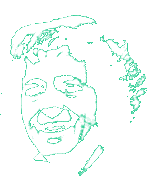
|
|
|
The 'Hampshire Border Raiders' (as they were winningly dubbed
by Leonard) also appear alongside the rest of the Man band on
Deke's solo 'Iceberg' elpee, recorded during 1972. 1972 was in
fact to be Help Yourself's busiest, and in some ways most successful,
year. A further album, 'Beware The Shadow', was recorded at Rockfield
and later mixed back at Olympic. Malcolm Morley remembers that
the whole thing was done in three or four all-night sessions,
after which they came straight out and went to Holland to do some
gigs. "It was good, I wish we'd had a bit more of that
sort of pace!". John Eichler meanwhile had had a couple
of trips to the States trying to raise funds and interest in the
band, whilst having hair-raising experiences with coke-crazed
record company executives and meeting Tina Turner. Richard Treece:
| ||
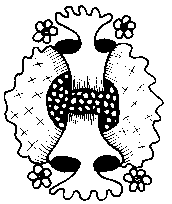
|
"Going to Olympic was always a joy. Apart from the heritage
of the Stones, Hendrix, Beatles etc, we'd occasionally get to
meet legendary figures. Steve Stills stumbled through (I think
he'd had a polo accident), noted the Fender pro-verbs we were
using on the 1st album and said, 'that's the way, boys'. Record
it nice 'n' low...' - we then discovered that his method was to
sit in the control room, guitar injected into banks of loud amps.)
Steve Marriott came into a mixing session and was complimentary
and good-vibey; and Pete Townsend came into the 'She's My Girl'
mixing session, enthused about the track and commented that 'it
leaves you wanting more'".
| |
|
A second single was released at the end of the year - a superb
pastiche of Christmas singles written by Neil Innes/Roger McGough
called 'Mommy Won't Be Home For Christmas', backed with a live
version of Johnny B. Goode by Sean Tyla and the Helps (calling
themsleves 'Space Truck & The Freight Yard Marshalls') taken
from a BBC radio 'Sounds Of The Seventies' broadcast which also
featured an unrecorded gem by the Helps entitled 'Halfbreed'.
The year was rounded off by an appearance at Man's Christmas party
at the Patti Pavilion in Swansea on December 19th. A ten-inch
double album was released to commemorate the event; Help Yourself
are joined onstage by Deke Leonard and pedal-steel guitarist B.J.
Cole for a loose jam based around Deke's 'Eddie Waring', which
displays the four individual guitar styles at work to great advantage.
The band also did a one-off gig in Berlin, performing a set of
Deke's songs with Plum Hollis of The Jets on vocals.
| ||
|
Treece recalls another memorable gig. "The United Artists
'Save Hartlepool Football Club' weekend was particularly wacky.
Andrew Lauder and Richard Ogden were Hartlepudlians and devised
this plan to have a benefit football match - football personalities
versus musicians, who included some Fortunes, a Vanity Fair, J.
Vincent Edwards from 'Hair', an Ivy League, Richard Williams,
Mick Watts, Roy Hollingworth, Ed Welch, Brian Keith (of Plastic
Penny) and Sean Tyla. It was an outrageous match. Things were
going badly for the musos and at half-time someone slipped Sean
a Dex. With his new super-powers Sean was soon in control of the
ball. We were all cheering as he was breaking through the opposition's
defences when he spun round, changed direction, raced back down
the field and kicked the ball into the musician's goal. Needless
to say, they lost. Then there was the gig. Man, Groundhogs, Allan
Taylor, Colin Scott and us. Man did a powerful set, were well
into it and running overtime. Tony McPhee was standing behind
the stage furiously shooting a starting pistol and shouting for
them to stop... Following the gig was the premiere of Zappa's
'200 Motels' and a reception with tables of food laid out. All
of a sudden the place erupted into a big cake-throwing fight,
from which I beat a hasty retreat back to the hotel. On our return
to Hampshire we found there was a new addition to the family,
in the person of baby Deke Eichler."
|
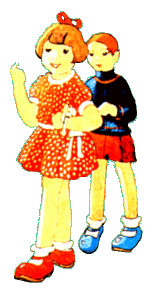
|
|
|
'Beware The Shadow' marked something of a new direction for Help
Yourself. Reverting to four musicians (Morley, Treece, Charles
and Burton), the only extra name was the ubiquitous Sean Tyla
who collaborated on the superb, West Coast acid-tinged 'American
Mother'. Other songs include a near-perfect melodic 'pop' song
called 'She's My Girl' which would have made a killer single,
and on the other side of the coin the amazing 'Reaffirmation'
which takes up most of Side One, a piece which chugs along at
a gentle pace with Morley's pseudo-American accent more pronounced
than ever until suddenly the twin guitars wind up into one of
the most melodic frenzies ever set into wax. Dave Charles' machine-gun
precise drumming is as neat as ever throughout, and Paul Burton's
bass achieves its finest and final moment - by the time the follow
up was being recorded in February 1973, Ken Whaley had returned
to the fold and Help Yourself were back to their original line-up.
Richard:
|
||

|
"It was pretty much the consensus of opinion that 'Happy
Days' was the thing we all wanted to do, and everyone was buzzing
with enthusiasm and ideas. All except Paul that is, who felt he
couldn't put his heart into the proposed theatrical vision and
would have preferred to keep to the straight rock-band format.
For some time we'd been wondering, what was all that thing with
Ken? He's brilliant! So when Paul joined Deke in 'Iceberg' full
time, Ken, spurred on a little by Deke Leonard who recognised
his talent, immediately agreed to come back. He left Ducks Deluxe
and moved into Finchley. John asked me if I had any ideas for
an album title, and being into Westerns I suggested 'The Return
of Ken Whaley'. I was surprised it was used - although it's pretty
much to the point I suppose."
| |
|
Originally released on UA as part of a two-LP 'boxed' set in a
bespoke card sleeve, 'The Return Of Ken Whaley' was accompanied
by the manic 'Happy Days' (catalogue number FREE 1) on which the
newly-dubbed 'East Finchley Raiders' were augmented for the duration
by the Flying Aces - Man's bassplayer Martin Ace and his wife
George - and the lunatic Vivian Morris, best known for his giant
Rizla packets and onstage antics. A tour was set up around the
whole Happy Days circus, a kind of vaudeville variety act which
also included Roger Ruskin-Spear of the Bonzo Dog Doo-Dah Band
(the Helps also appear on his LP 'Unusual' on United Artists).
|
"I think 'Happy Days' foxed a few people" says
Richard, "It was very difficult to pin the show down.
Our set included playing and acting along to the 'It Has To Be'
backing track - Malcolm danced around with a jewel in his forehead
- and at one point John got stuck in his rabbit suit which made
him furious. I remember Stacia had also expressed an interest
in appearing, it was mentioned in a paper and some very eager
but rough fans turned up one night to see her. It ended with this
terrible vision of Munch, who travelled with us, mincing across
the stage in make-up and a skirt. I don't really think it satisfied
the fans. [Munch went on to join Tenpole Tudor!] 'Happy Days'
was the most gigs we ever played in a row. We had a huge roadie-cum-tour-manager
named Big Bob, who had been an uncomplicated small-gig promoter,
totally frustrated at us always being a different line-up - he
soon became very complicated and went off to India after mass
exposure to 'Happy Days' and a set of Martin and George's songs.
We also met up again with Wolfgang, the German film-maker who
had made a documentary about us and was, I think, involved with
linking the gig up with a simultaneous radio broadcast."
| |
|
Despite the disposable, fun nature of the album, 'Happy Days'
contains a couple of highlights in another of Morley's near-perfect
pop songs - 'Jesus What Are Little Kids For' - and 'My Friend',
which captures some of Treece's very best guitar playing for a
few brief glorious moments on Side 2. There were more than a few
glorious moments on its companion LP 'The Return Of Ken Whaley',
however. Firmly enshrined amongst my own personal ten favourite
records of all time, I can think of few other bands who could
begin to approach the nightmarish power of songs such as 'Candy
Kane' or the ten-minute free-festival workout 'It Has To Be',
set them alongside one another and also include some great keyboard
work, guitar playing and songwriting skills all on the same album.
'Pioneers of the West in the Head' they truly were.
Malcolm Morley fondly recounts how 'It Has To Be' came to be recorded: "We had already completed most of the tracks for the album when John Eichler informed me that there wasn't enough material to fill the album. We needed at least another song, possibly two. I told him I didn't have any more songs but he said, 'well, we've got to get it finished, I've booked some more time in Olympic Studios. So we'll just go in and do something.' 'Right', I said.
| ||
|
"So the day of reckoning arrived and we all decided (with
the exception of Dave Charles) to take LSD in order to spice things
up a little. We trooped into the studio, the equipment was already
miked up so we started plunking away on our guitars. The music
was meandering along after a fashion whilst I stood there wondering
what the hell we were doing, when all of a sudden there was a
shout from the control room, 'That's it - you can stop now - come
in and listen to this!' So we stopped and went in. I'm standing
there whacked out of my brains on acid as this sound, somewhat
reminiscent of a Pterodactyl on a bicycling holiday, rumbles out
of the monitor speakers. I said to Anton the engineer, 'Is that
us? We didn't play that, did we?' Anton had taken acid as well
(for the first time in his life, as it happens) and he was hunched
over the desk maniacally fiddling with the controls. I tried again.
|

|
|
| "'So, that's us is it?' |
No answer. Anton appeared to be
speaking in numbers. I persevered.
| |
|
"'We've been out there (pointing at the studio floor),
and this is what we played (pointed to the monitor speakers)'.
|
'Yes, yes, I think we should commit it to tape.' This
he said with some degree of agitation.
| |
| "'What?' I said. |
'I think we should commit it to tape' he repeated.
| |
|
"This 'commiting it to tape' turned out to be a technical
term which I eventually came to grasp but which I've subsequently
forgotten. At the time, however, it suggested to my addled grey
cells that what we were hearing wasn't on tape at all. In which
case, where was it? I remember looking through the window on to
the floor of the studio to make sure we weren't still out there
playing the bloody thing. I then looked at Anton.
| ||
|
"'I don't get it....', I said.
|
"'I think we should commit it to tape', came the reply.
| |
|
"I wondered if this was the only thing Anon was ever going
to say again, he was either smiling at me or gritting his teeth
and I couldn't be sure which; everybody was looking at me so I
decided it was time to pretend I understood what was going on.
| ||
|
"'Okay, let's do that then.'
| ||
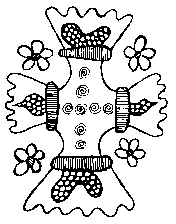
|
"John attempted to come to my rescue and lead me very
gently to a seat to explain the technicalities, but I sensed he
was on somewhat unsteady ground himself and I suspected he was
merely humouring me. So I went out for a hamburger and a couple
of Valium and stared at the sports page of the Daily Express for
a bit. When I came back, Anton was looking a little flushed. 'Do
you want a couple of these?' I asked, offering him several yellow
pills. 'What are they?' he asked, eyeing them suspiciously - 'Valium'
- 'Yes, I think I will. I'll have them all', he said.
"You can hear the results for yourselves. I think I added some piano towards the end of the track, and Dave Charles made some marvellous experimentations with the synthesiser (a new and exciting device in those times), and that was it. The title 'It Has To Be', incidentally, was thought up by John Eichler's father."
| |
|
Critically acclaimed, the album nevertheless sold far less than
was expected. Morley had by now sunken into one of his periodic
morasses of self-doubt, and as disillusionment spread through
the band outside interests began to attract their attention.
| ||
|
Morley recalls, "I know I felt very disappointed after the Happy Days
tour. We'd put a tremendous amount of work into that and all thoroughly
enjoyed it. We all felt a sudden kind of loss when it finished.
Andrew Lauder thought the band was starting to sound really good
by then, and wanted to push us. They didn't want to put any more
money into 'Happy Days' though, so we went back to doing 'straight'
gigs - but it all felt very flat somehow."
|
Treece: "We called it a day amid some rumour of touring
with Jefferson Airplane. It was quite an adjustment to make the
downward energy curve after 'Happy Days' - I was incredibly happy
when I was asked to join the Splendid Humans a few months later."
| |
|
Help Yourself had one last attempt to record an album. In November
1973 they went into Chipping Norton studios in Oxfordshire and
demo'd six new songs, including a couple which later got reworked
for an aborted Malcolm Morley solo album - 'Martha, 'Honey Please',
'Miss Grace' and 'Willow' are all in a similar mould to 'Beware
The Shadow' era material, superb melodies with the guitar almost
weeping in the background as it weaves in and out of the keyboard
work and the sublime harmonies giving each song Help Yourself's
own distinctive signature (for those of you familiar with the
tapes, it was Deke Leonard and not Richard Treece that supplied
the gorgeous guitar part on 'Honey Please' incidentally). Another
song intended for the album was a survivor from earlier sessions,
shortly after 'The Return of Ken Whaley' was recorded; the fabulous
(if oddly titled) 'Eating Duneburgers' which took the band to
new heights of psychedelic exploration - and features a Treece
guitar solo which still sends shivers up my extremities to this
day. Sean Tyla contributed keyboards to the song. It was to be
a fitting, if secret, epitaph; the tapes never saw the light of
day, and shortly afterwards the band broke up.
| ||
|
Malcolm Morley:"We hadn't sold many copies of the Ken Whaley album and
I couldn't really see the point of doing another one if it wasn't
going to sell. I didn't really have many songs finished, just
some half-formed ideas. I just got fed up with the whole thing,
so we decided to knock it on the head. We weren't getting the
gigs, nobody wanted to re-book us because we weren't pulling in
the crowds and so it all came to a natural conclusion in a way.
The funny thing was, a year or so later we got together again
for a one-off benefit concert put together by Pete Frame of Zig
Zag magazine. It starred Mike Nesmith and took place at the Roundhouse.
The place was completely packed - and most of them seemed to have
come to see us. At the end of the set I had to go back on and
say look, we can't do any more because Mike Nesmith's waiting
to come on. I remember feeling so frustrated, thinking to myself
'where were you all when the band was still going?'"
|
Richard Treece recalls, "When the band had broken up and
things were in disarray, most of us were still living in Finchley
and we found ourselves flogging off bits of group gear to survive.
Sean Tyla stepped in again and either through a sentimental fondness
or a desire to help out purchased a few items. He bought my Strat
and immediately the bridge broke. He bought my twin reverb and
the speakers blew. He bought the Transit and the engine fell out,
I think."
| |
|
Malcolm Morley joined a band called Bees Make Honey for about
six months, doing more gigs in that period than Help Yourself
had in their entire four year career and thoroughly enjoying himself
too. "I was getting six quid a night, so for the first
time I was rich. I thought it was terrific - we just didn't do
enough gigs in the Helps, not enough people liked us until after
we had disbanded."
Malcolm Morley and Ken Whaley, almost inevitably, then joined Man on a more permanent basis, recording the LP 'Winos, Rhinos and Lunatics' with the band. Malcolm remembers that he was reluctant to leave Bees Make Honey because he was having such a good time, but he couldn't turn down the offer to join Man and besides, "they had an American tour lined up, which had been a dream for a long time. And it was a great tour - I can't remember much of it, but it was good fun!" Richard Treece eventually joined Man-band exiles Phil Ryan and Will Youatt in the Neutrons (after a brief spell in the unrecorded Splendid Humans); Sean Tyla went on to form the Tyla Gang, which both Richard and Ken played with at various times. Dave Charles threw himself into session work and engineering/production, and was a long-time member of Dave Edmunds' band as well as playing with such people as Carl Perkins, George Harrison, Ringo Starr, Dion and Steve Cropper (to name but a few.) In 1976 Malcolm Morley finally recorded his solo album, backed by various members of Plummet Airlines who he'd been working with sporadically (they did a tour of Holland together, Malcolm playing piano), in Foel Studios and produced by erstwhile Brinsley Ian Gomm. "Oddly enough, it was Dot Burn-Forti who again gave me the opportunity, she'd married a chap who had this studio and they gave me the time to record. Ian Gomm was the engineer there. I gave the tapes to Barry Marshall, but he didn't have any luck trying to sell them."
| ||
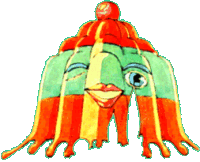
|
Malcolm Morley's last recorded excursion was some studio tracks
and a TV appearance for Kirsty McColl in 1981. After a hiatus
of several years however, he has been playing live once again
recently, a regular Friday and Saturday night solo spot at a French
restaurant called Le Chandon in London's Blackheath Village. Richard
and Ken also have a band, The Archers (recently renamed The Green
Ray, with an album out on Father Yod in the USA), which has gigged
sporadically in pubs and small clubs around London.The band is
developing a small but eager following of fans, many of whom know
little of their past glories. And that's perhaps just as it should
be.
| |
|
Whatever happens, Malcolm Morley, Richard Treece, Ken Whaley,
Dave Charles and the various other people who passed through the
ranks of Help Yourself in their all too-short lifespan will never
be forgotten. Or at least, not if I have anything to do with it.
I really loved that band, and if this article serves to turn on
even a couple of new listeners to their timeless albums then this'll
all have been worthwhile.
| ||
|
|
|
|